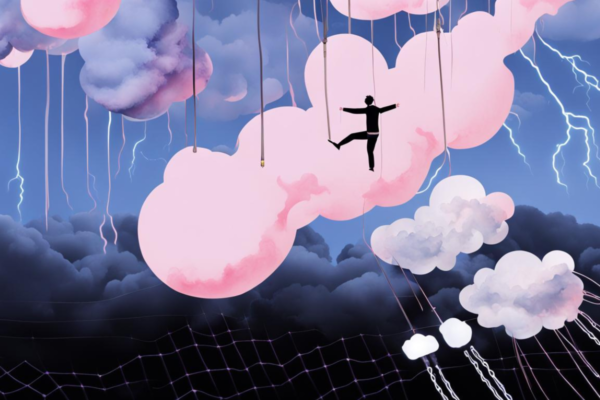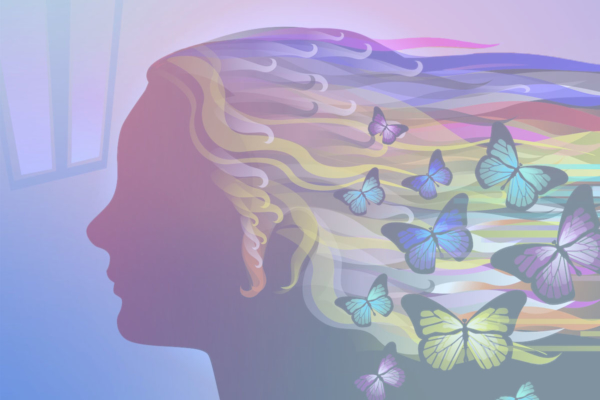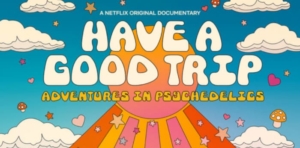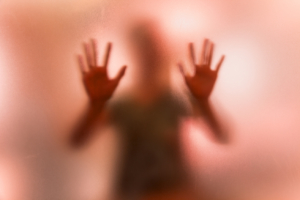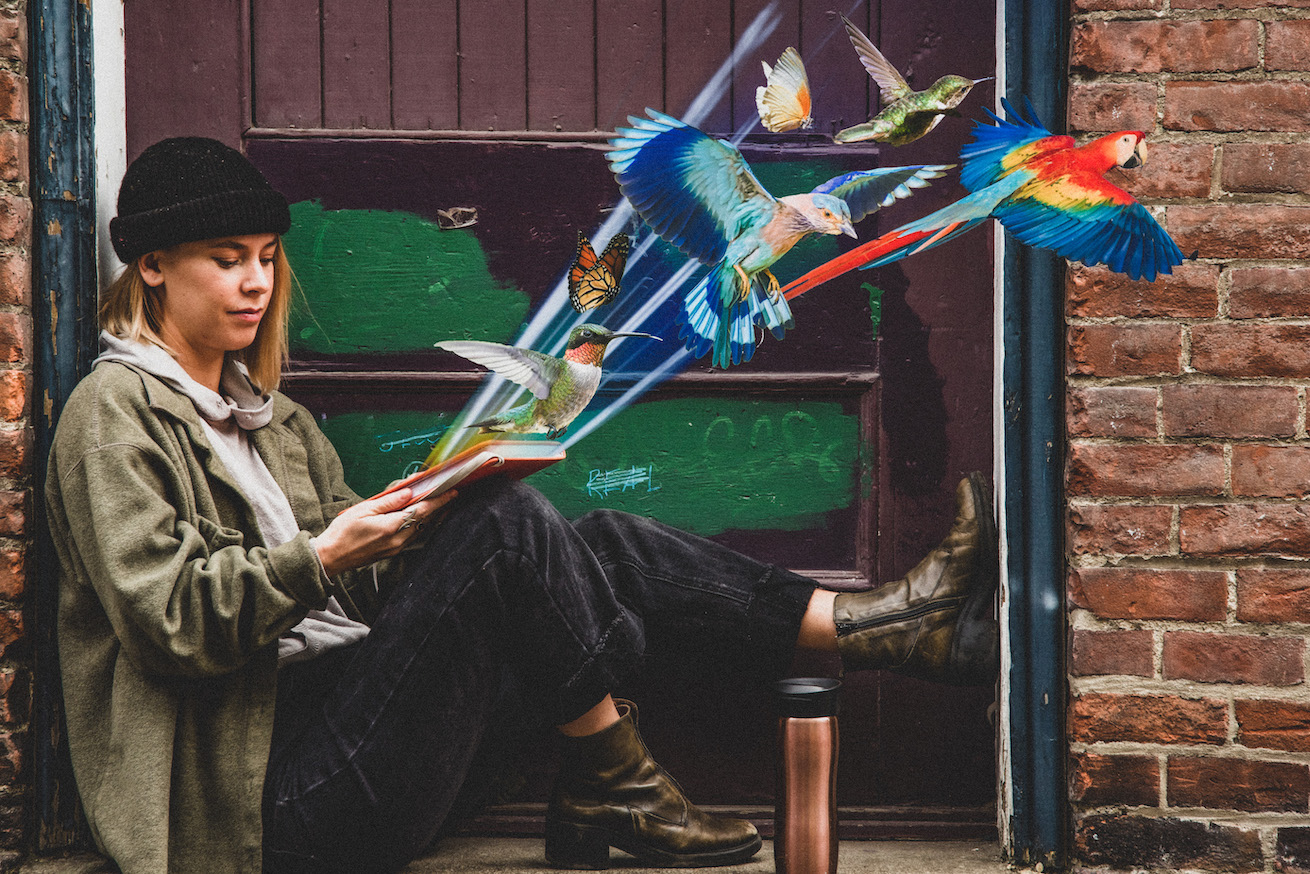
The new year is right around the corner, which means New Year’s resolutions are, too. For those tiring of social media overload, it may be time to turn a new page in life by putting down the phone, picking up a pen, and journaling your way to a healthier, happier you.
It’s an old practice that is getting a timely facelift from Wakeful Travel, a start-up that is a couple of thousand dollars away from reaching a Kickstarter fundraising goal to create the first batch of psychedelic integration and travel journals with guided prompts to help thoughts and feelings flow from the mind to the page.
“When I first started working with plant medicine, I stared at a blank notebook for so long,” founder Jenalle Dion tells Psychedelic Spotlight. “Because I wanted something to prompt me and ask me questions. And I think that the questions are really what help you tune into that wisdom that you already have within you.”
Journaling, she assures, is not just for psychedelic explorers. Dion describes the practice as “disconnecting from technology to reconnect with yourself.”
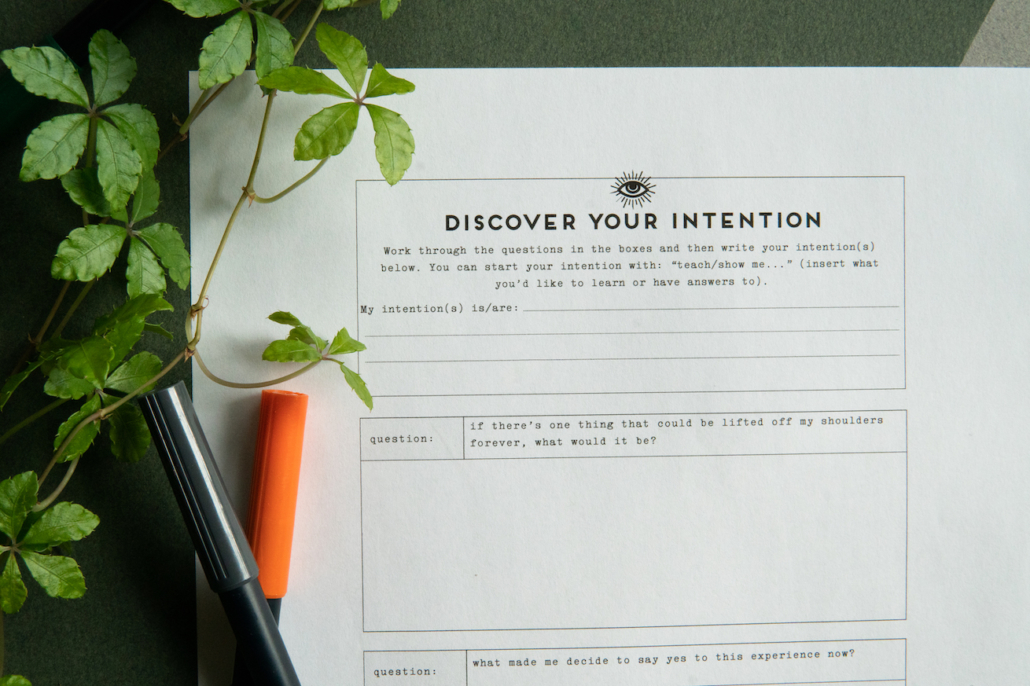
“We are constantly on our phones. We are addicted as a society,” Dion says. “We’re on our phones to work, we’re on our phones to socialize, we’re on our phones to do our banking, and to date. Screen time is all of the time, and we’re overwhelmed by notifications.”
It’s an issue that has was brought to mainstream consciousness in early 2020 with the release of hit Netflix documentary The Social Dilemma, which featured Silicon Valley insiders sounding the alarm on the dangerous impact of social media on our society, as well as dubious tactics the biggest companies in the business use to hook users while influencing and manipulating their behavior.
According to Addiction Center, an estimated 5-10 percent of Americans meet the criteria for social media addiction, “characterized as being overly concerned about social media, driven by an uncontrollable urge to log on to or use social media, and devoting so much time and effort to social media that it impairs other important life areas.”
Although video-based platforms like TikTok, Snapchat, and Twitch are beginning to dominate the market once controlled by Facebook and Twitter, social media is essentially journaling in the 21st century, whether you’re typing thoughts or speaking them. But there is a flaw in this model: you will be judged for your thoughts and feelings, and they can cost you more than followers.
In the 15 years since Twitter launched in 2006, we’ve collectively witnessed countless relationships, reputations, and careers burn to the ground because of thoughts and feelings carelessly shared on the platform. This reactionary domino effect has been dubbed “cancel culture,” which has become a rallying cry for pundits, politicians, and celebrities who think they’re being unfairly held accountable for simply expressing ideas that other people don’t like.
While it’s true the First Amendment to the U.S. Constitution does prohibit Congress from making any laws limiting citizens or the press from speaking freely, it does not protect anyone from the personal judgment of another citizen. And those judgemental opinions spread more fast and furious than ever before because the speed of communication is faster than ever before. Public outrage is not new, but the mediums through which we express it are. And they’re all right at our fingertips on the screen of our mobile devices, constantly tempting us to engage.
Perhaps it’s time to consider kicking it old school with your deepest thoughts by writing them down in a safe space to be read by you, and only you. Venting, after all, can be very healthy, and helpful for navigating tough times.
“Honestly, I started journaling when my parents got divorced,” Dion says. “That’s how I would process my emotions.”
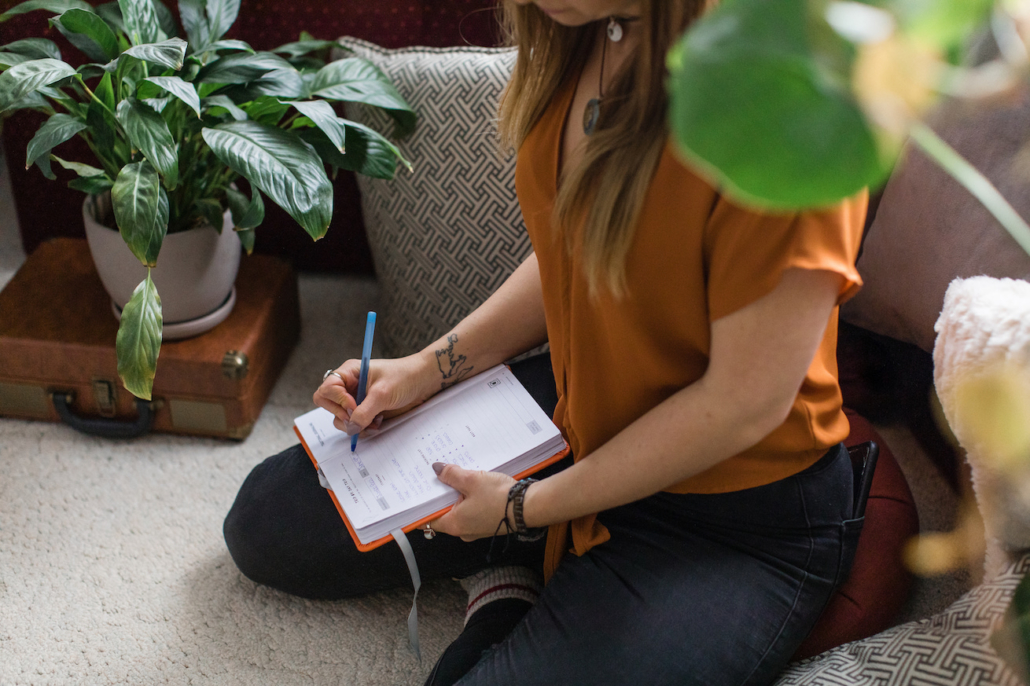
Debate on the internet all you want, but you’ll never find peace of mind through conflict, and the real work for personal growth is internal. Dion recognized the power of journaling to empower that internal work during a profound ayahuasca ceremony experience, which she embarked upon with the intention to heal some childhood wounds.
“Things just started pouring out of me, and the emotions were being released in a different way. It was like I didn’t need to suffer in my body, and I could process these things on paper,” she explains. “As I continued to write, the heaviness started to lift, and then I started getting downloads of my childhood, and my family, and where I could forgive, and where I could let go of anger.”
She describes that as a “pivotal moment” on her healing journey. “Journaling is a medicine in itself and pairing it with ayahuasca, or whatever medicine you choose, was very powerful for me. Because when we use these tools, we go on a deeper integration journey. We make a commitment to ourselves to actually change, instead of ‘rushing our healing,’ trying to sit in ceremony every single weekend, without taking the space to really reflect and go inward.”
When asked if journaling has changed her own relationship with social media, Dion says, “If I didn’t have a business, I probably wouldn’t be on it anymore.”
“It’s almost like once I started doing the internal work, I didn’t need to be so loud externally on those platforms,” she explains. “There’s a lot of preaching going on on the internet, and now, for me, it’s easy to see who is really looking at their shadow side and devoting themselves to being of service, and who might not be.”
Dion also emphasizes another reason to be wary: “We don’t own anything that we put there. So, I do think with the amount of data that’s constantly being stored — and it’s already happening — apps will continue to break down or glitch out.”
She recalls losing a treasure trove of beautifully edited photographs that she’ll never get back, and points out that “with a journal, you don’t have that risk of losing everything.”
“I mean, I guess you can forget your journal somewhere,” she adds after a beat. “But there’s a page at the beginning of the Wakeful Travel Journals where you can write down all your information. You can have an address there, in case the journal gets lost, and I also encourage people to take photos of the journal often so that you have a backup.”
If you’d like to give journaling a shot, consider contributing to the Wakeful Travel Kickstarter to reserve your copy of these one-of-a-kind journals before they hit the market.

